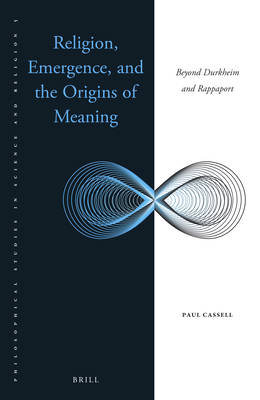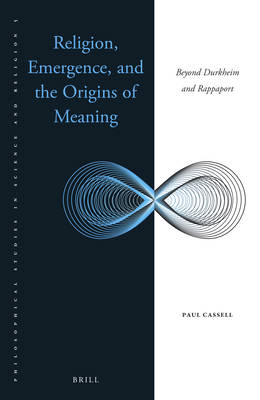
- Afhalen na 1 uur in een winkel met voorraad
- Gratis thuislevering in België vanaf € 30
- Ruim aanbod met 7 miljoen producten
- Afhalen na 1 uur in een winkel met voorraad
- Gratis thuislevering in België vanaf € 30
- Ruim aanbod met 7 miljoen producten
Zoeken
€ 178,95
+ 357 punten
Omschrijving
Why is religion so important to individuals and societies? What gives religion its profound meaningfulness and longevity? Enhancing perspectives taken from sociology and ritual theory, Religion, Emergence, and the Origins of Meaning describes how 'emergence theory' - developed to make sense of life and mind - explains why religious communities are special when compared to ordinary human social groups. Paul Cassell argues that in religious ritual, beliefs concerning unseen divine agencies are made uniquely potent, inviting and guiding powerful, alternative experiences, and giving religious groups a form of organization distinct from ordinary human social groups. Going beyond the foundational descriptions of Émile Durkheim and Roy Rappaport, Cassell utilizes the best of 21st century emergence theory to characterize religion's emergent dynamics.
Specificaties
Betrokkenen
- Auteur(s):
- Uitgeverij:
Inhoud
- Aantal bladzijden:
- 204
- Taal:
- Engels
- Reeks:
- Reeksnummer:
- nr. 5
Eigenschappen
- Productcode (EAN):
- 9789004293656
- Verschijningsdatum:
- 7/05/2015
- Uitvoering:
- Hardcover
- Formaat:
- Genaaid
- Afmetingen:
- 160 mm x 239 mm
- Gewicht:
- 453 g

Alleen bij Standaard Boekhandel
+ 357 punten op je klantenkaart van Standaard Boekhandel
Beoordelingen
We publiceren alleen reviews die voldoen aan de voorwaarden voor reviews. Bekijk onze voorwaarden voor reviews.











